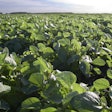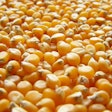The key to managing the livestock industry’s carbon footprint while continuing to supply the demand for meat likely lies in continued increases in efficiency, according to Delacon, which has focused on improved performance and economic profit, and the reduction of ammonia and odor emissions, in its product development.
Transferring research results into carbon dioxide equivalents has revealed that these are also the core parameters to achieve a substantial carbon footprint reduction in animal production, said the company, leading to two feed additives — Fresta F and Fresta F Plus — that reduce total life cycle greenhouse gas emissions per kilogram of fattening pig by 2.3–2.6 percent. Another product, Biostrong, results in a reduction of 4.8–5.3 percent, according to Delacon.
Feeding broilers and pigs products such as Delacon‘s could result in up to 29 million tons of CO2-equivalents per year being eliminated from the environment, said the company — the equivalent of the annual emissions of 2.9 million citizens of the European Union.









